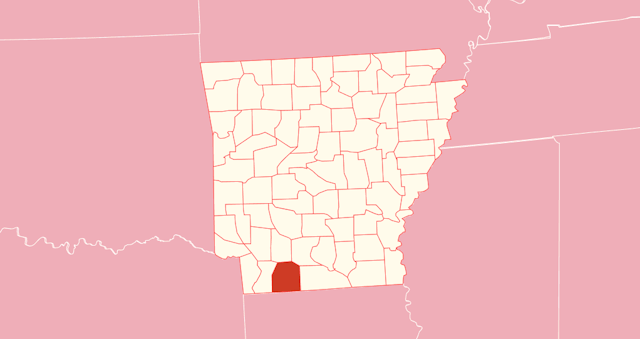Rehabs in Columbia
Columbia County is a province in the US state of Arkansas. Its traditional center is in Magnolia. As of the 2010 US census, the region had a population of 24,552.
Between 2010 and 2012 AR is one of the leading states for rates of drug use. As of the Report of the National Survey on Drug Use and Health (NSDUH), over 7,6% of the AR residents reported the use of illegal medication during the past month. Thus, in 2010 substance misuse caused 374 deaths in this state. Despite these high rates, in 2013 the state was in the 25th in the whole country for its drug overdose rates.
These statistics emphasize the importance of overcoming dependency. Drug and alcohol rehabs in Columbia County may offer you proper healing experiences for gaining long-lasting sobriety. However, keep in mind, that there is no single path to recovery. You should assess your personal needs, and search for the treatment program that matches your recovery goals.
Available Treatment Options
If you or your loved one has a drug or alcohol dependence, you should search for a multi-faceted approach. That is to say, dependence is a chronic condition, and moving forward in recovery, a person explores some mental, physical, behavioral, and emotional issues. So, rehabs in Columbia County, offer therapy and counseling, to identify the underlying thoughts and feelings of your behavior.
If you are not sure what kind of treatment you need, you have to begin by learning about the services that Arkansas rehabs have. Generally, after finishing the primary detox, you should engage in a complete addiction therapy program. A competent treatment plan considers substance abuse assessment, detox, dual diagnosis, inpatient or outpatient care, aftercare, etc.
Substance Abuse Assessment
To identify the type of addiction and its severity, one has to pass an evaluation procedure. Through a special test, a professional does the assessment. You may be asked questions about your substance misuse and its history. This procedure also helps to create a personal treatment plan and find a proper facility.
Dual-Diagnosis
Over half of the people with dependencies experience underlying mental health issues. It is vital to do a dual diagnosis and describe two medical problems that happen at the same time.
Detox
In case of physical dependence on drugs, a person should go through detox. Withdrawal from toxins may cause pain and be dangerous to life. Hence, medical control during withdrawal, makes this process more comfortable and safe. The real recovery starts after the successful detox.
Outpatient Program
Outpatient care provides standard dependence treatment. It can be delivered in different settings, which may include both offices and clinics. The main components of this plan are individual and group counseling and family therapy. The team of experts involves physicians, psychiatrists, social workers, and psychologists.
Inpatient Care
To heal from severe addictions and co-occurring disorders, a person has to attend an inpatient course. The latter is also known as residential care, where the person receives around-the-clock expert support and control. The length of the stay varies from a month to 6 months and more. In other words, it depends on personal needs. A patient remains in a substance-free environment that improves the rate of healing success. Counseling and behavioral therapy are the main elements of it. Moreover, support from peers and family can also motivate the patient.
Payment
Many people don’t enter rehab because of their high costs. However, many health insurance plans have some level of coverage for evidence-based therapies. Find the details of the recovery coverage within your insurance paper, or by contacting your insurance agency directly. The main companies in this field are Aetna, UnitedHealthcare, Blue Shield Blue Cross, Cigna, etc.
Other options of payment are medical loans, payment plans, laws like COBRA, sliding scale fees, Grants and Scholarships, Employee Assistance Programs (EAPs), and financial aid from SAMHSA, from family and friends.

